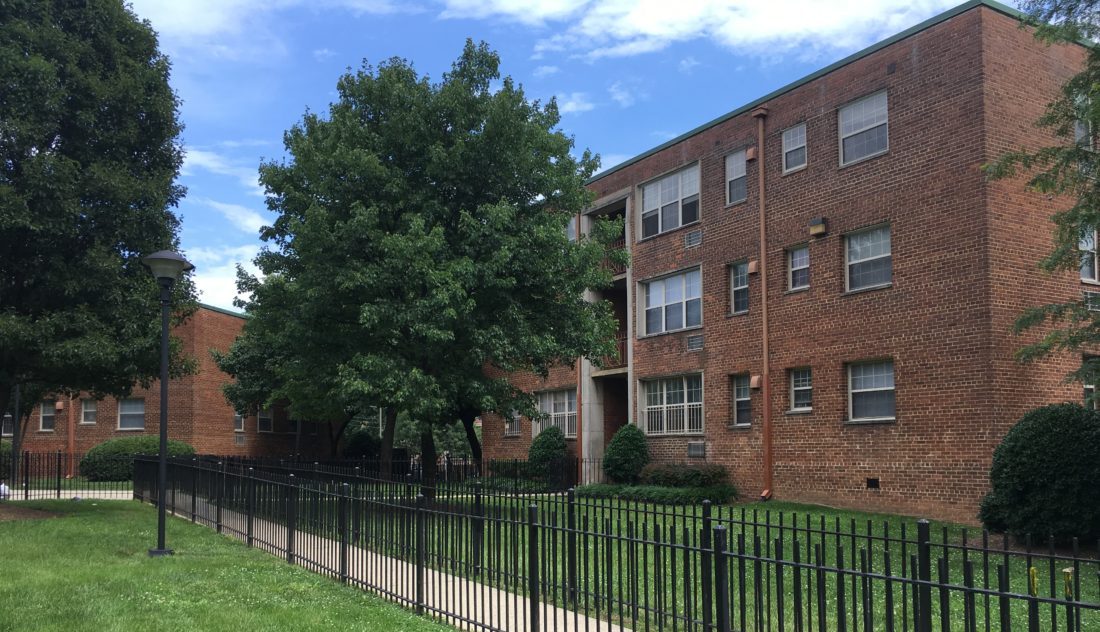Two men involved in a drug-distribution ring in Southeast D.C. will be resentenced, the D.C. Circuit ruled Friday (June 15).
The men, Keith Matthews and Ira Adona, were part of a group accused of manufacturing and selling the hallucinogenic drug PCP—commonly known as angel dust—out of the Woodberry Village apartment complex. After Matthews was convicted by a jury and Adona pleaded guilty, the D.C. district court sentenced them to nine years each. They challenged those sentences as too severe, and in a lengthy per curiam opinion in United States v. Brown, a divided panel of the D.C. Circuit agreed.
Matthews, despite being initially charged with 22 criminal counts, was ultimately convicted of just a single gun charge. After calculating his Federal Sentencing Guidelines range as between six-and-a-half and eight years, the district judge departed upward from that range and imposed a nine-year sentence to “make an example” out of Matthews.
The D.C. Circuit held that the district judge did not adequately explain the reasons for the upward departure. “The law’s demand that a court explain why a defendant is treated more harshly than other similar situated defendants safeguards a fundamental component of justice: parity in criminal sentencings,” the panel wrote. “That aspect of the process broke down in this case.”
Adona’s sentence was also broken, the panel said. He pleaded guilty to two separate charges in two separate courts and was sentenced separately for each: first, he was sentenced to two years by the D.C. Superior Court for a drug-related shooting; then he was sentenced to nine years by the federal district court for conspiracy to distribute PCP. The district judge enhanced Adona’s federal sentence due to the shooting offense and ordered the D.C. and federal sentences to run consecutively rather than concurrently.
On appeal, the D.C. Circuit first addressed a provision in Adona’s plea agreement that waived his right to appeal his sentence. Despite that provision, Adona’s waiver was not truly voluntary because the district judge incorrectly explained to Adona what the waiver meant, the panel held.
Then, turning to the merits of the sentence, the panel said the back-to-back sentences appeared to punish Adona twice for the shooting offense. On remand, the district court must consider whether the portion of Adona’s federal sentence that is attributable to the shooting enhancement should run concurrently with his D.C. sentence for that same shooting.
The panel—which consisted of Chief Judge Garland and Judges Millett and Kavanaugh—affirmed the sentences of two other defendants tied to the PCP ring.
Millett wrote a concurrence to express her disagreement with circuit precedent that allowed Matthews’s sentence to be enhanced based in part on alleged criminal activities for which he was acquitted at trial. Specifically, Matthews was acquitted of assault and burglary, but the government nonetheless used those alleged activities to push for a harsher sentence.
“Many considerations at criminal sentencing, like the defendant’s background, criminal history, and other mitigating or aggravating factors, need only be proved by a preponderance of the evidence,” Millett wrote. “But lumping acquitted conduct in with those traditional factors and then using that acquitted conduct to single a defendant out for distinctively severe punishment—an above-Guidelines sentence—renders the jury a sideshow.”
Kavanaugh dissented from the panel’s order of new sentences for Matthews and Adona. He said that Matthews’s sentence was both procedurally and substantively reasonable and that Adona waived his right to appeal his sentence in his plea agreement.
![]()

